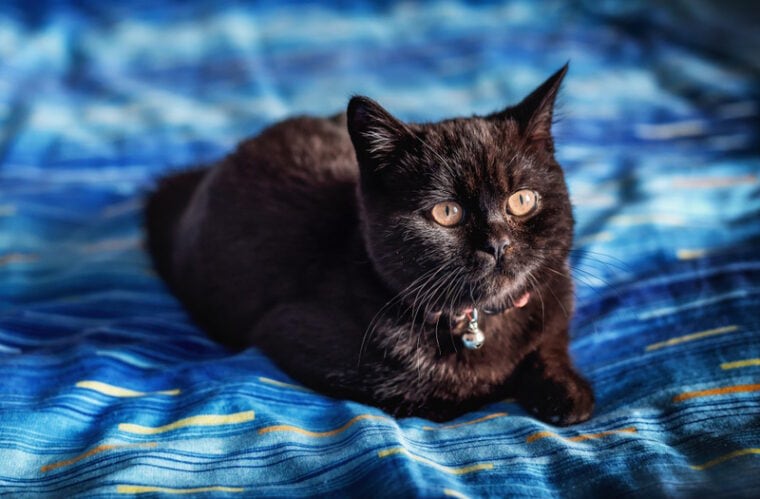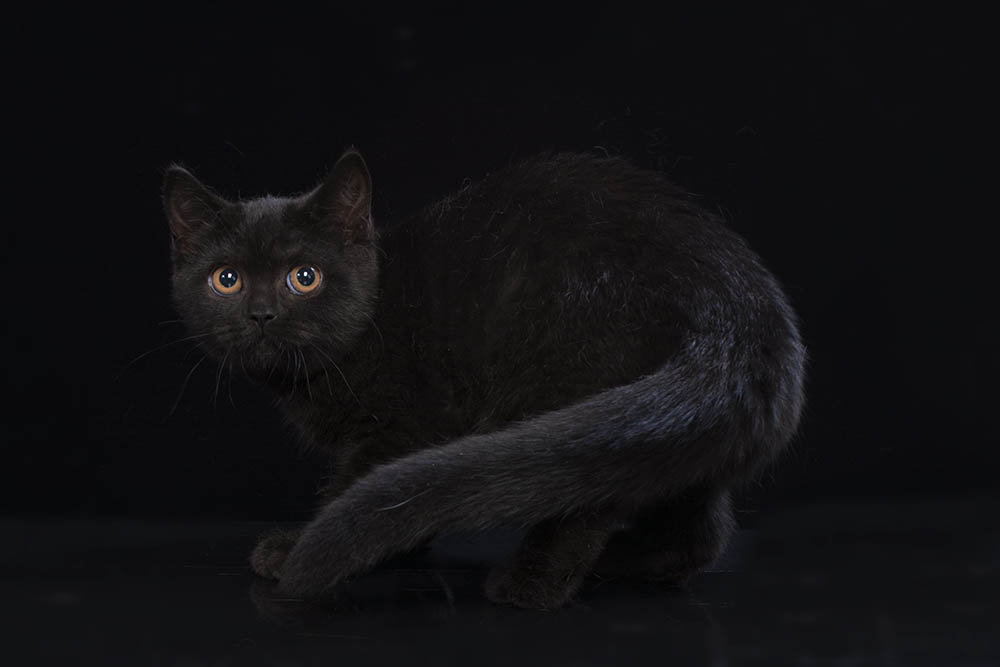
The British Shorthair is a compact, muscular cat breed that is popular for its laid-back, loving temperament. Most people are familiar with the British Shorthair in its blue coat coloration, but these lovely cats come in a variety of colors. One of the colors of British Shorthair that you may not have spotted is black. Is black a breed standard color for these kitties? Fortunately, it is!
Can British Shorthairs Be Black?
Yes, black is an accepted color within the British Shorthair breed standard. Although uncommon, it’s not the rarest coat color. The rarest color in British Shorthairs is fawn, making these cats exceptionally valuable.
All British Shorthair cats have eyes that fall on the orange or copper spectrum, with the exception of white cats, which may have blue eyes. The paw pads and noses of black British Shorthair cats are also black, but their eyes are somewhere in the orange range.

British Shorthair cats can also have patterned coats that may include black, including bicolor, tricolor, harlequin, tortoiseshell, tabby, smoke, shaded chinchilla, and tipped chinchilla. Tabby can be further broken down into ticked, dotted, blotched, tattered, or mackerel.
Smoke, shaded chinchilla, and tipped chinchilla can all have black fur at the end of the hair shaft, but the hair shafts closest to the body are silvery-white in color. Smoke accounts for around half of the shaft, while both chinchilla patterns only have darker pigment on the top 1/8th of the shaft.
The Black Hair Gene
Believe it or not, blue British Shorthair cats are actually blue because of the same gene that causes black hair. Blue cats have an additional gene that creates color dilution, so the blue color is actually a faded, smoky black. These genes also impact the color of the paw pads and muzzle, which also are blue or faded black in color.
Interestingly, black British Shorthair cats often don’t stay black their entire lives. Typically, they are born black and will remain black for at least the first year or so of life. As they age, the coat may begin to fade to a deep chocolate brown.
It’s not uncommon for black cats to fade or “rust” as they age, especially if they spend a lot of time in direct sunlight, but for British Shorthairs, they will turn a brown color all over and not just in bright lighting.

Conclusion
British Shorthair cats can be black in color within the breed standard, but black is an uncommon coat color. It may be difficult to find a black British Shorthair.
For some black British Shorthairs, their coat will fade as they age, turning a beautiful chocolate brown color. For others, they may slightly rust as they age and spend time in the sun, but this color change will only be noticeable in bright lighting.
Blue British Shorthairs have the same gene that causes the black coat color, but they contain a secondary dilution gene that fades their black coat down to a smoky blue.
Featured Image Credit: sduraku, Shutterstock





